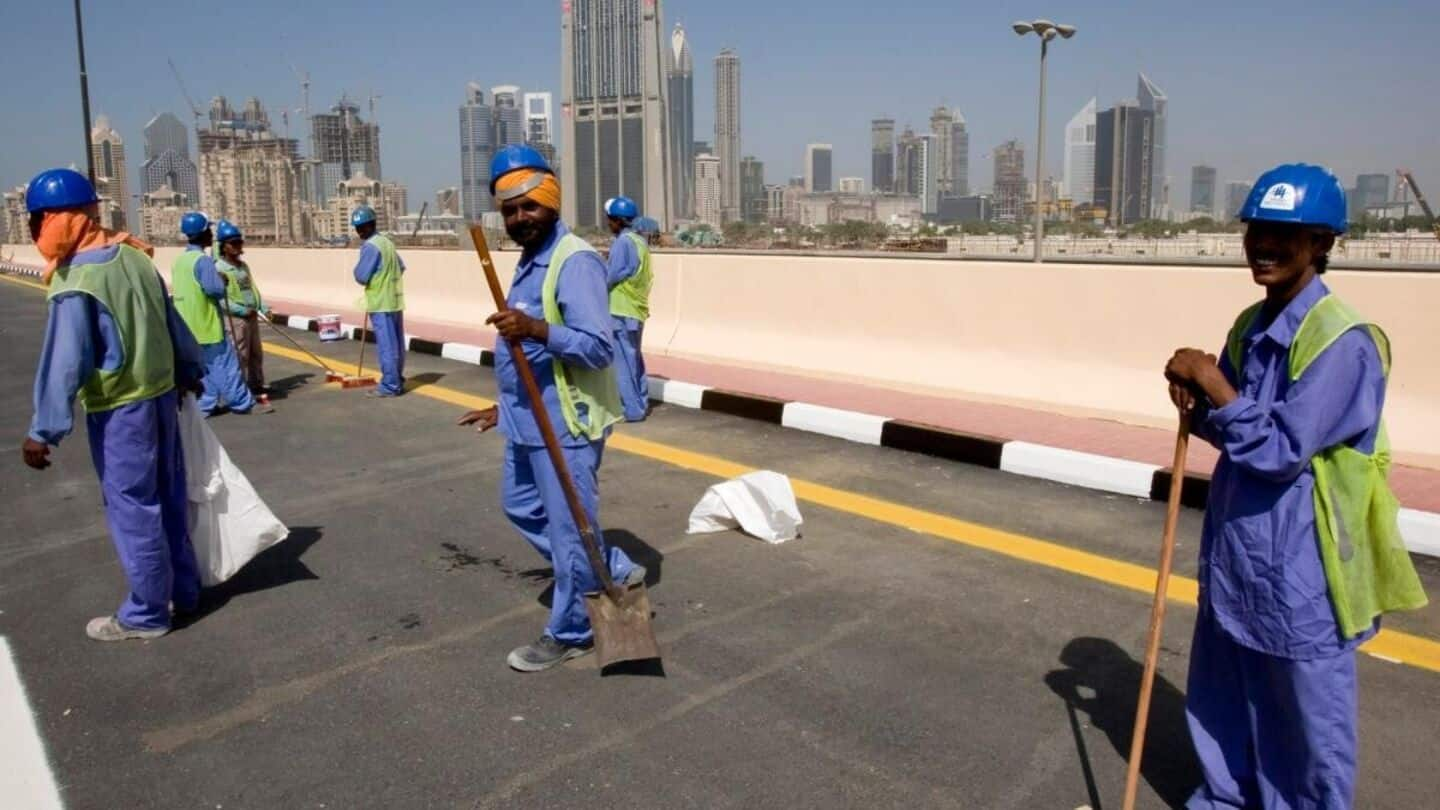
What happens to 2.6M Indians as Saudi ends Kafala system
What's the story
Saudi Arabia has officially abolished its controversial Kafala system, a labor sponsorship model that controlled the lives of millions of migrant workers for over seven decades. The reform, announced in June 2025, is one of the most significant changes to the Gulf's labor framework and will directly benefit around 13 million foreign workers. This includes over 2.6 million Indians, as per India's Ministry of External Affairs (MEA).
System overview
What is the Kafala system?
The Kafala system, which means "sponsorship" in Arabic, was a structure where local employers took legal responsibility for foreign workers' visas and residency. Introduced in the 1950s during Saudi Arabia's oil boom, it was meant to manage labor inflow from abroad. However, over time, it became synonymous with exploitation as employers often confiscated passports and delayed wages while restricting travel and job changes.
Worker exploitation
System was widely criticized as 'modern-day slavery'
The Kafala system was widely criticized as "modern-day slavery" by human rights groups. Domestic workers, especially women, were the worst affected under this system. They often faced isolation, excessive hours of work, and emotional or physical abuse. The International Labour Organization (ILO) and several foreign governments have long called for reforms to such sponsorship systems due to their links to forced labor and human rights abuses.
Labor reliance
Migrant workers and their significance to Saudi economy
Saudi Arabia's workforce is heavily dependent on migrants, with around 13.4 million foreign workers making up about 42% of its population. These workers are employed in sectors such as construction, agriculture, and domestic work. Most hail from India, Bangladesh, Nepal, and the Philippines. Under the new contract-based framework, migrant workers can switch jobs without employer approval and leave the country without exit visas or sponsor consent.
System reforms
Labor reforms in 2021
The reform also improves access to labor courts and complaint mechanisms for workers to report abuse or non-payment. This change is part of Crown Prince Mohammed bin Salman's Vision 2030 agenda, which aims to modernize society and diversify the economy. Saudi initially introduced labor reforms in March 2021 that aimed to allow migrant workers to change jobs without employer consent under certain narrow circumstances, Human Rights Watch said. The reforms, however, fell short of completely dismantling the kafala system.